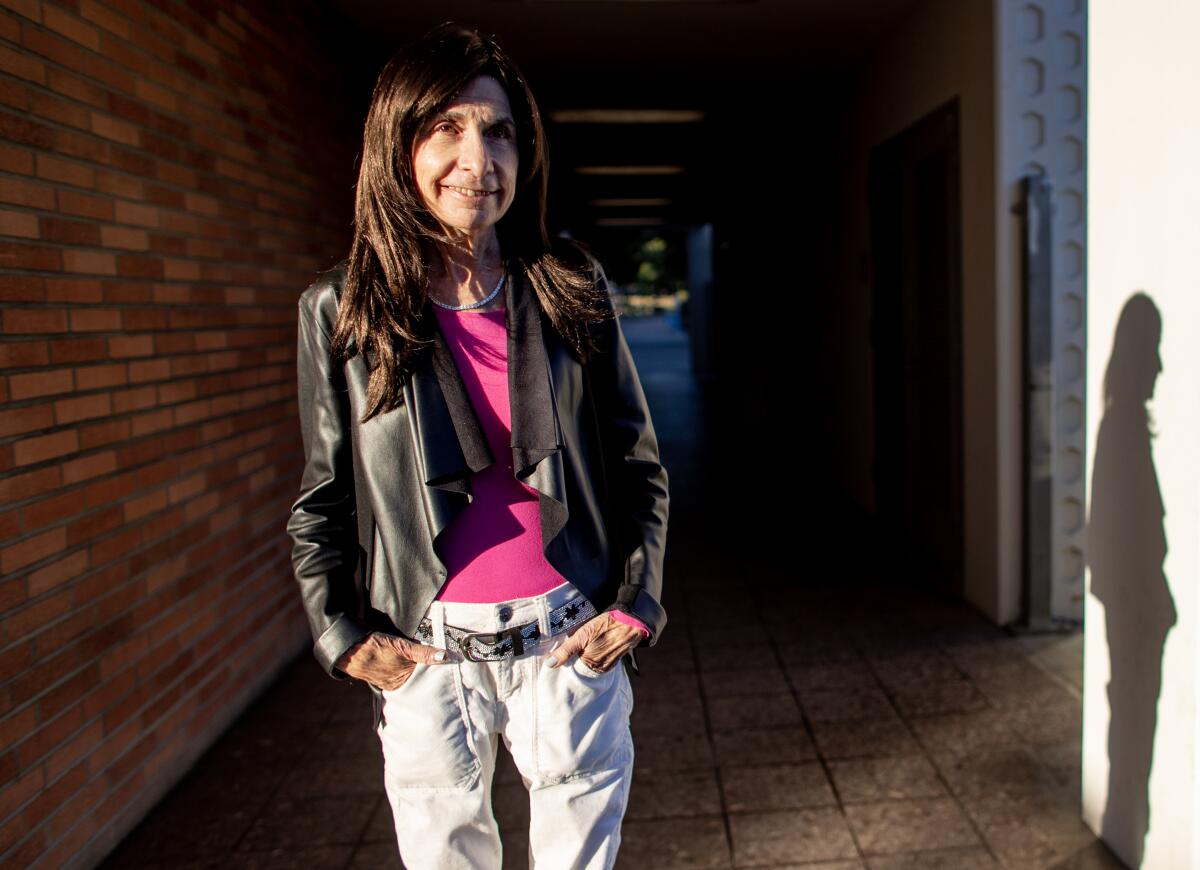Orange County twin expert comes to rescue of former medical students accused of cheating

- Share via
Identical twins Kayla and Kellie Bingham share more than physical attributes. They both enjoy running, are competitive soccer players and love trivia nights. In school, they received similar grades and standardized exam scores.
The women, now 31, didn’t give their similarity much thought — it just came with being a twin. Then, in 2016, they were accused of cheating in medical school.
A professor who was remotely monitoring an eight-hour exam noticed that the twins were progressing similarly though the questions and had many of the same incorrect answers. To her, that meant they were cheating.
The Binghams filed a lawsuit against the university and turned to Nancy Segal, a Cal State Fullerton psychology professor who has spent her career studying twins, to help clear their names.
After a five-day trial in November, which included testimony from Segal, a jury decided that the Medical University of South Carolina had defamed the sisters and awarded them $1.5 million.
Segal, who is the founding director of the Twin Studies Center at Cal State Fullerton, testified that it’s common for identical twins to have similar test scores.
The Binghams left medical school after being shunned by their peers. They went to law school instead, graduating last year.
“We know we did nothing wrong, but trying to defend ourselves seemed impossible,” Kayla Bingham said. “It was a horrible situation, and the lawsuit seemed to be the only way to clear our names.
“Dr. Segal was incredibly influential in the case, especially helping the jury understand the similarities and the testing concepts between twins, specifically identical twins.”
Segal opened the Twins Studies Center at Cal State Fullerton when she began working at the college in 1991. She hoped to not only support research on twins but to also provide a place for the public to get information. She frequently gets questions from parents of twins who are looking for answers about their children and how best to support them.
“I do a lot of scholarly quantitative work, but I also stay very active and alive in the public domain,” Segal said. “And I think it’s very important to get these research findings to the people who can most benefit from them.”
Segal was in her last year of college at Boston University when her abnormal psychology professor gave an assignment to write about people adjusting to situations. Segal decided to draw on a situation from her childhood in New York City, where her fraternal twin sister tested into a more advanced elementary school class than she did.
“What always had rankled me was the fact that my sister is a little smarter than I am,” Segal said. “So I thought I would write a review piece on twin school separation. From that moment on, I was hooked.”
Genetics help explain why identical twins perform similarly in educational settings.
Growing up, Segal liked ballet while her sister hated it, preferring instead to take drama classes. Such divergent interests are not unusual for fraternal twins, who are no more genetically alike than any two siblings. Identical twins have the same genetic blueprint, which leads to similar behaviors and thought processes.
In 2012, Segal published “Born Together, Reared Apart: The Landmark Minnesota Twin Study,” which delved into research that she and others had done years earlier studying pairs of twins who had been raised separately. The study gave them a chance to look at the influence of genes and the environment on behavior and personality.
“We found even identical twins raised apart are more alike than fraternal twins raised together,” she said. “It’s very hard to explain that without reference to a genetic explanation. I’m not saying genes are everything. ... I would never say that. Identical twins don’t show perfect similarity, but they are consistently more alike than any other pair of people.”
When she testified in the Binghams’ lawsuit, she explained that it would have been more surprising if the women’s answers had been significantly different.
“These are identical twins who process information the same way and have similar abilities and interests,” she said. “I would have been shocked if they hadn’t performed similarly.”
While Segal enjoys studying twins, she also finds fulfillment in helping the world better understand them.
The Binghams are not the only identical twins who have been accused of cheating on exams. Over the years, Segal has fielded questions from families in similar situations.
“These girls suffered for years because of this allegation,” Segal said. “This case is important because these situations damage families. Society as a whole is not as attuned as it should be to the different types of twins and their behaviors.”
More to Read
Sign up for Essential California
The most important California stories and recommendations in your inbox every morning.
You may occasionally receive promotional content from the Los Angeles Times.











